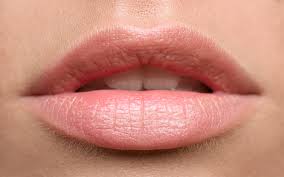lip
英 [lɪp]
美 [lɪp]
- n. 嘴唇;边缘
- vt. 以嘴唇碰
- adj. 口头上的
- vi. 用嘴唇
- n. (Lip)人名;(法)利普;(中)猎(广东话·威妥玛);(柬)利;(东南亚国家华语)立
使用频率:

记忆方法
将“lip”与“lipstick”(口红)关联起来记忆,想象自己正在涂口红,嘴唇上清晰地显露出唇线,这样就能迅速回忆起“lip”这个单词表示的意思——嘴唇。
以上内容由AI生成, 仅供参考和借鉴
中文词源
lip 唇
来自PIE*leb,舔,拟声词,词源同labia,labial.
英语词源
- lip
-
lip: [OE] Lip has been traced back to Indo- European *leb-, which also produced Latin labrum ‘lip’, source of French lèvre ‘lip’ and English labial [16]. Its Germanic descendant was *lepaz-, from which come German lippe, Dutch lip, Swedish läppe, Danish læbe, and English lip.
=> labial - lip (n.)
- Old English lippa, from Proto-Germanic *lepjon (cognates: Old Frisian lippa, Middle Dutch lippe, Dutch lip, Old High German lefs, German Lefze, Swedish läpp, Danish læbe), from PIE *leb- "to lick; lip" (source also of Latin labium).
French lippe is from a Germanic source. Transferred sense of "edge or margin of a cup, etc." is from 1590s. Slang sense "saucy talk" is from 1821, probably from move the lip (1570s) "utter even the slightest word (against someone)." To bite (one's) lip "show vexation" is from early 14c. Stiff upper lip as a sign of courage is from 1833. Lip gloss is attested from 1939; lip balm from 1877. Related: Lips. - lip (v.)
- c. 1600, "to kiss," from lip (n.). Meaning "to pronounce with the lips only" is from 1789. Related: Lipped; lipping.
权威例句
- 1. She had quite severe bruising and a cut lip.
- 她身上有严重的淤伤,嘴唇也破了。
- 2. He curled his upper lip in a show of scepticism.
- 他撇嘴表示怀疑。
- 3. With a lip pencil, outline lips and fill them in.
- 用唇线笔勾出双唇的轮廓,然后涂上唇膏。
- 4. They are not given hearing aids or taught to lip-read.
- 没有给他们提供助听设备,也没教过他们唇读。
- 5. The man's heavy moustache hid his upper lip completely.
- 那个男人浓密的髭须完全遮住了他的上唇。
